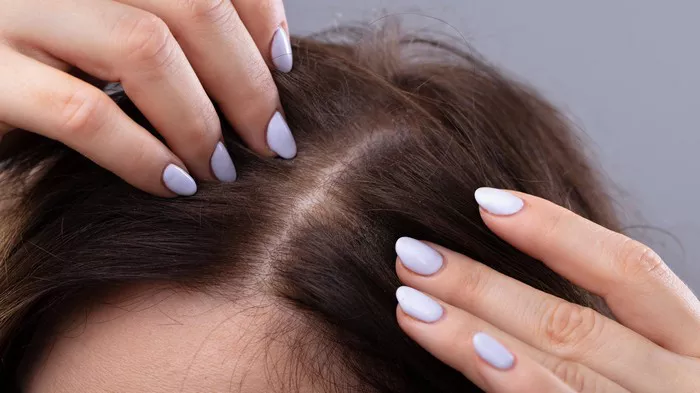Losing weight is a commendable achievement that brings numerous health benefits. However, it’s not uncommon for individuals to experience an unexpected side effect: hair loss. The relationship between weight loss and hair loss is complex, but understanding the underlying causes and implementing effective strategies can help mitigate this concern. In this guide, we’ll delve into seven key aspects to help you stop hair loss while pursuing your weight loss goals.
Causes of Hair Loss
Hair loss can occur due to a variety of factors, including genetics, hormonal changes, medical conditions (such as thyroid disorders), certain medications, and poor nutrition. Rapid weight loss can also contribute, as it places stress on the body and disrupts the hair growth cycle. Additionally, deficiencies in essential nutrients like iron, biotin, and zinc can lead to weakened hair follicles. Stress and underlying health issues can exacerbate the problem. Understanding these causes is crucial for effectively addressing and preventing hair loss while pursuing weight loss goals.
The Link between Hair Loss and Weight Loss
Weight loss and hair loss often share a connection due to the body’s response to changes in nutrition and hormone levels. Rapid weight loss can shock the body and disrupt the hair growth cycle. Additionally, inadequate calorie intake may lead to nutrient deficiencies that impact hair health.
What to do about hair loss when losing weight?
Dealing with hair loss during weight loss requires a comprehensive approach to ensure your hair remains healthy while you shed pounds. Here are several actionable steps to consider:
1. Prioritize Balanced Nutrition
Maintaining a balanced diet is crucial for preventing hair loss during weight loss. Ensure your meals include a variety of nutrient-rich foods, including lean proteins, whole grains, healthy fats, and a spectrum of vitamins and minerals. Foods like salmon (rich in omega-3 fatty acids), eggs (high in biotin), and leafy greens (abundant in iron) contribute to strong and vibrant hair.
2. Gradual Weight Loss for Hair Health
Opting for a gradual weight loss approach rather than crash diets can significantly reduce the risk of hair loss. Rapid weight loss shocks the body and diverts its attention away from maintaining hair growth. Gradual weight loss allows the body to adapt more smoothly, minimizing the impact on hair health.
3. Stay Hydrated
Adequate hydration is often overlooked but plays a crucial role in maintaining healthy hair during weight loss. Water supports nutrient absorption and helps in eliminating toxins from the body. When the body is well-hydrated, it can better allocate resources to support hair growth.
4. Supplement Wisely
Supplements can be valuable additions to your weight loss journey, but it’s important to consult a healthcare professional before incorporating them. Biotin supplements, for instance, are popular for promoting hair health, but their effectiveness varies. A healthcare provider can recommend suitable supplements based on your individual needs.
5. Hair Care Routine
While focusing on your weight loss, don’t neglect your hair care routine. Gently massage your scalp to stimulate blood flow, which aids in hair growth. Use mild shampoos and conditioners that suit your hair type, and avoid excessive heat styling or tight hairstyles that can stress the hair shafts.
6. Manage Stress
Stress can exacerbate hair loss, so incorporating stress management techniques is crucial. Regular exercise, yoga, meditation, and proper sleep can help reduce stress levels. High stress triggers hormonal imbalances that contribute to hair loss, so finding healthy ways to manage stress is essential.
7. Consult a Professional
If you notice significant hair loss during your weight loss journey, consider consulting a dermatologist or a healthcare provider. They can help identify any underlying issues, provide personalized recommendations, and rule out medical conditions that might be contributing to hair loss.
How to lose weight without damaging your hair?
To lose weight without damaging your hair, focus on a gradual and balanced approach. Prioritize a nutrient-rich diet with adequate protein, vitamins, and minerals to support hair health. Avoid crash diets, as extreme calorie restrictions can lead to hair loss. Stay hydrated to maintain hair moisture. Incorporate regular exercise to promote overall health. Consult a healthcare professional before making significant dietary changes. Use gentle hair care products and avoid excessive heat styling or harsh treatments. Manage stress through relaxation techniques. Adequate sleep and a well-rounded lifestyle can contribute to weight loss while preserving hair quality.
Conclusion
Embarking on a weight loss journey is a positive step toward better health, but it’s essential to be aware of potential side effects like hair loss. By understanding the connection between weight loss and hair health and implementing the strategies outlined in this guide, you can minimize the impact of hair loss while working towards your fitness goals. Remember that gradual, balanced, and informed approaches yield the best results for your overall well-being.


